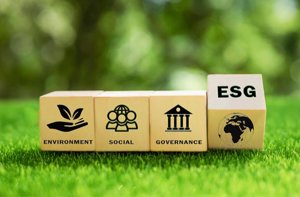
Disclosures and reporting
We support organisations with their carbon and energy reporting in their non-financial disclosures.
Our experts can assist companies with their CDP, Global Reporting Initiative, Achilles, EcoVadis, and B Corp auditing. Our support ranges from delivering the whole report, to supporting individual elements, or mapping processes against each standard and suggesting which ones to pursue.
We know that carbon and energy reporting is not a one size fits all approach, so we treat every organisation as unique and create tailored reports.
What is non-financial reporting?
Non-financial reporting is the process of gathering and disclosing data on a company’s performance including environmental, social, ethical, and governance aspects. The definition of ESG will differ by organisation and must be authentic to be effective.
However, ESG reporting must also be robust and consistent to ensure that companies can be compared, and held to account.
There are several best practice sustainability reporting standards used by companies, institutions, and investors alike.
Sometimes organisations are required to participate in multiple recording frameworks for various reasons. Our sustainability experts can help streamline the disclosure process and support tangible improvements in ESG scores.
Benefits
- Ensure your organisation passes investors non-financial reporting standards screening.
- Align your ESG Reporting to your existing and prospective customers values and expectations.
- Maintain reputation in the face of public scrutiny of companies environmental, social and governance.
- Demonstrate your public commitment and actions in tackling climate change and inequality.
- Gain competitive commercial advantage.
Expertise
Maximise scoring
Joined up approach
Our sustainability professionals are experts in the non-financial disclosure reporting process. We can support your organisation to streamline and optimise your reporting procedures, obtain better data, reduce impacts and improve ESG scores.
Our team of sustainability experts can support you to set up robust reporting practices in line with any of the below standards and ensure transparency of disclosures to the most rigorous of standards.
CDP
CDP (formally Carbon Disclosure Project) is a best practice standard which requires companies to report on Environmental, Social and Governance issues. CDP uses a robust scoring methodology to measure an organisations progress on tackling climate change, deforestation, water scarcity, and uses the data to rank companies’ performance. Recent information reports 590 investors with over US$110 trillion in assets and 200 large buyers with US$5.5 trillion in procurement spend, use CDP to measure the sustainability of its supply chain and investments.
The benefits of participating in CDP are:
- Enhance company reputation through transparent reporting.
- Gain competitive advantage when accessing capital and winning tenders.
- Ensure compliance for upcoming mandatory environmental reporting under TCFD.
- Reduce climate-related risks and capabilities on new business opportunities.
- Compare environmental performance against industry peers and competitors.
Global Reporting Initiative (GRI)
The Global Reporting Initiative provides a framework for consistent reporting of sustainability, ethics and economic performance. The GRI publishes a set of specific standards for topics including:
- Energy
- Emissions
- Water and Effluents
- Waste
- Biodiversity
- Procurement practices
- Supply chain environmental assessment
- Supplier social assessment
- Diversity and equal opportunities
Achilles
Achilles audits an organisation’s supply chains to deliver insights to help them meet their sustainability goals.
With stakeholders holding businesses to ever-increasing standards, it is important for them to have a complete picture of their supply chains. Achilles helps organisations raise standards across their supply chain around their business performance, as well as their ethical and environmental standards.
EcoVadis
EcoVadis helps organisations manage their network both upstream and downstream. They do this by sharing performance with stakeholders or monitoring performance of the upstream value chain. The methodology is built on international sustainability standards, including the Global Reporting Initiative, the United Nations Global Compact, and the ISO 26000, covering 200+ spend categories and 175+ countries.
Its Sustainability Scorecard illustrates performance across 21 indicators in four themes: environment, labour and human rights, ethics and sustainable procurement.
B Corp
B Lab's standards define social, environmental, and governance best practices for businesses. They include:
- B Impact Assessment: A comprehensive tool to measure, manage, and improve a company’s positive impact performance for workers, communities, customers, suppliers, and the environment. A required verified score of 80 on the B Impact Assessment also serves as a certification requirement for B Corp Certification.
- Risk Standards: An assessment of eligibility for B Corp Certification based on a review of potentially negative impacts associated with a company’s industry and other practices.
- Multinational Company Standards & Baseline Requirements: Additional baseline requirements for large companies which are defined as a parent company generating $5B+ in annual revenue.
You might also be interested in...
Your environmental risk reduction partner, ensuring the safety of your people, property, reputation and the environment
Our experts are on hand to provide tailored investigation, consultancy, response and remediation services to help you balance commercial objectives and environmental compliance.
Contact our experts



